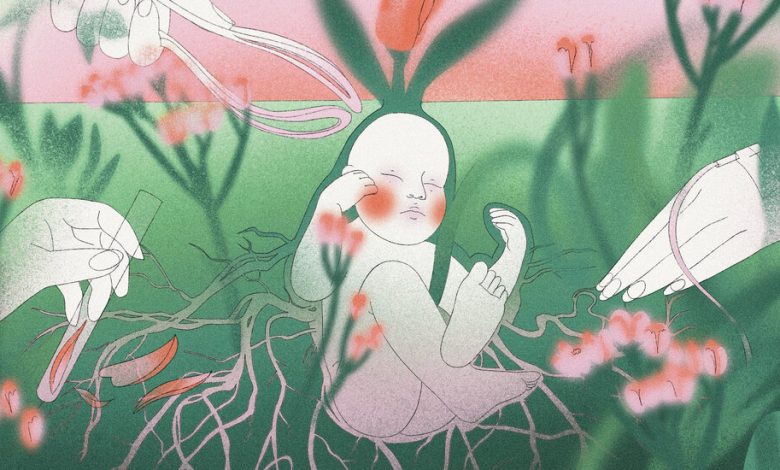Is This Maternity Hospital Haunted, or Is It All a Pregnant Metaphor?

THE GARDEN, by Clare Beams
Irene Willard is a midcentury American woman with a history of miscarriages and a husband who is eager to start a family. Still childless, now pregnant for the sixth time, Irene dutifully packs herself off to an isolated ancestral estate that has been repurposed by a husband-and-wife medical team into a care center for high-risk pregnancies. This place is more haunted manse than hospital. The doctors are prone to say things like “now for your first injection” — and they won’t take no for an answer. Small indefinable living things skitter in the shadowed corners of the rooms. And: There is a neglected garden out back that has the power to bring dead things back to life.
With such a richly gothic setup, you might forgive me for thinking “The Garden” was about to deliver some blood-splattery fun and maybe even some zombie babies by the end. But that is not this book — or at least, that is not the whole story. Tucked inside this story’s gothic envelope is a tale inspired by a horrific chapter in the history of obstetric medicine.
“The earliest whisper of ‘The Garden’ came to me in the history of diethylstilbestrol” (or DES), Beams writes in her acknowledgments. “That drug’s story … set mine in motion.” A synthetic estrogen that was prescribed for decades to prevent miscarriage, DES did nothing to prevent miscarriage; what it did instead was cause cancers, infertility and birth defects. How could such a medical tragedy have continued for so long? Beams borrows facts from history to fashion an answer to that question in the guise of a horror story.
Irene is savvy and skeptical and she has doubts from the beginning about the hospital and its so-called state-of-the-art treatments. But her fear of triggering another miscarriage keeps her paralyzed and compliant: She “would never go home by choice to wait for the wave, the streak, the clot, the pool, the groan, the clench, the seep, the first slight cramp, each moment a terrible balance of hoping and dreading, listening and trying not to listen, feeling and trying not to feel.”
